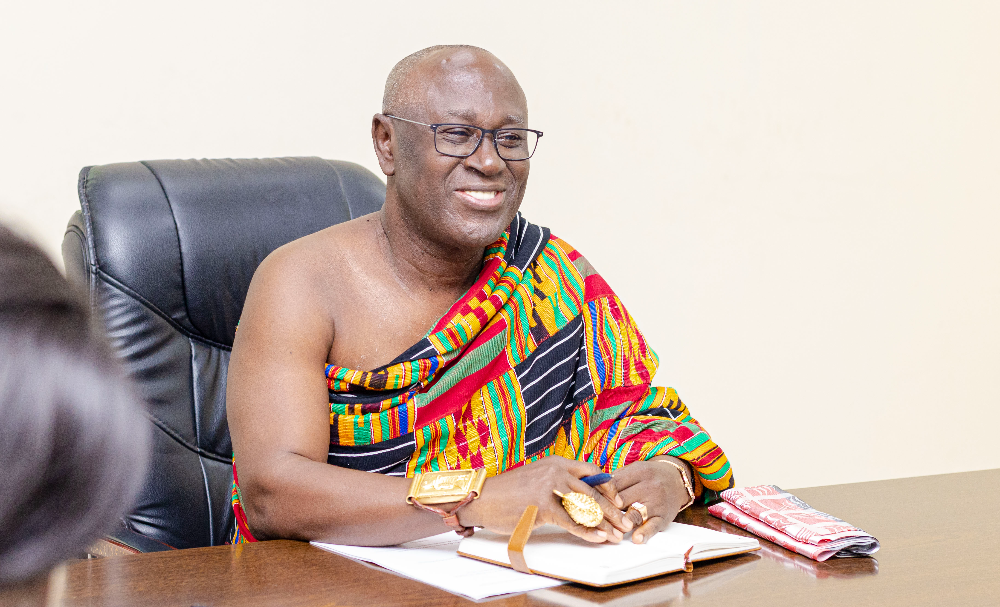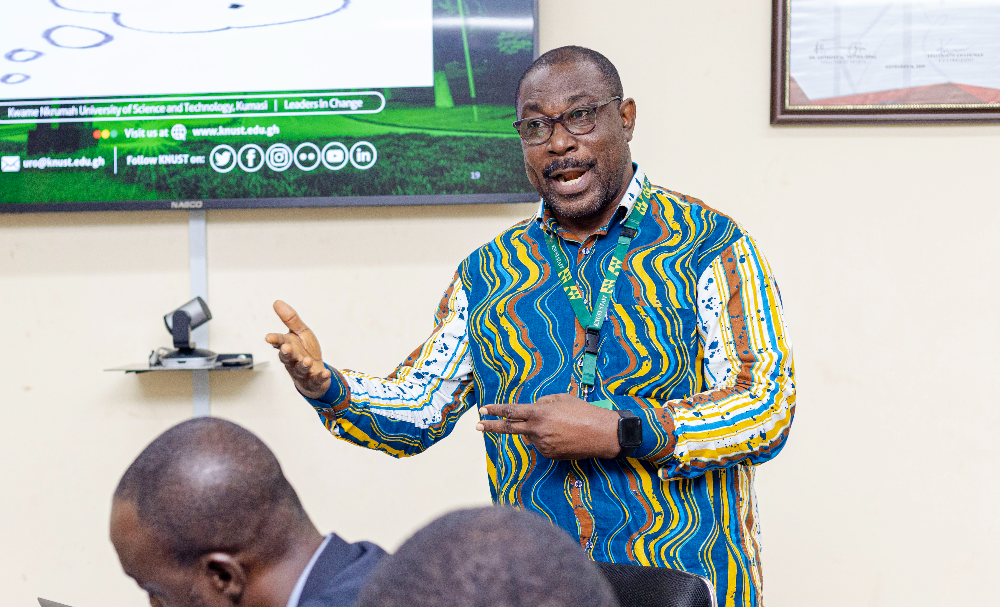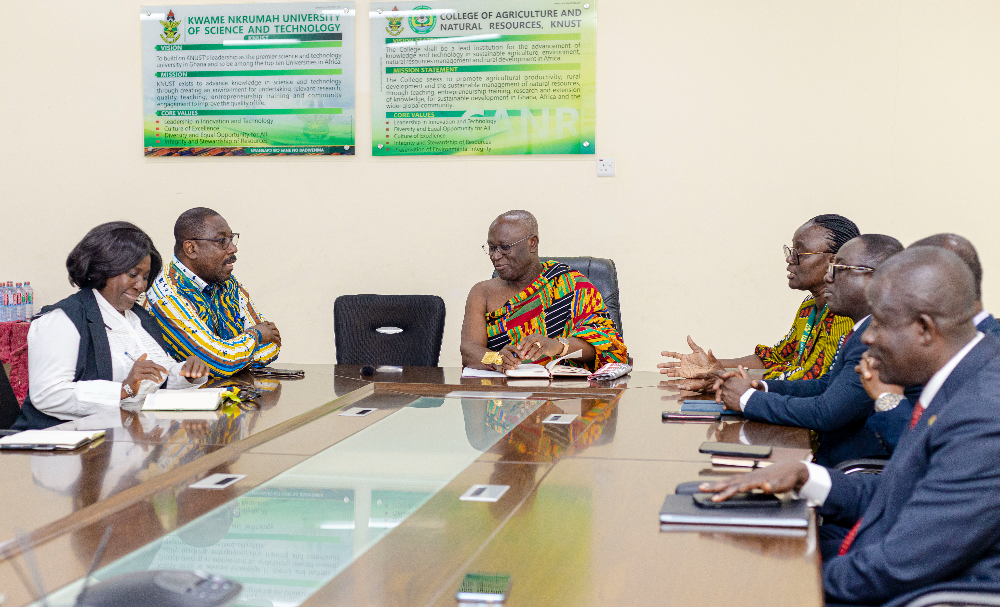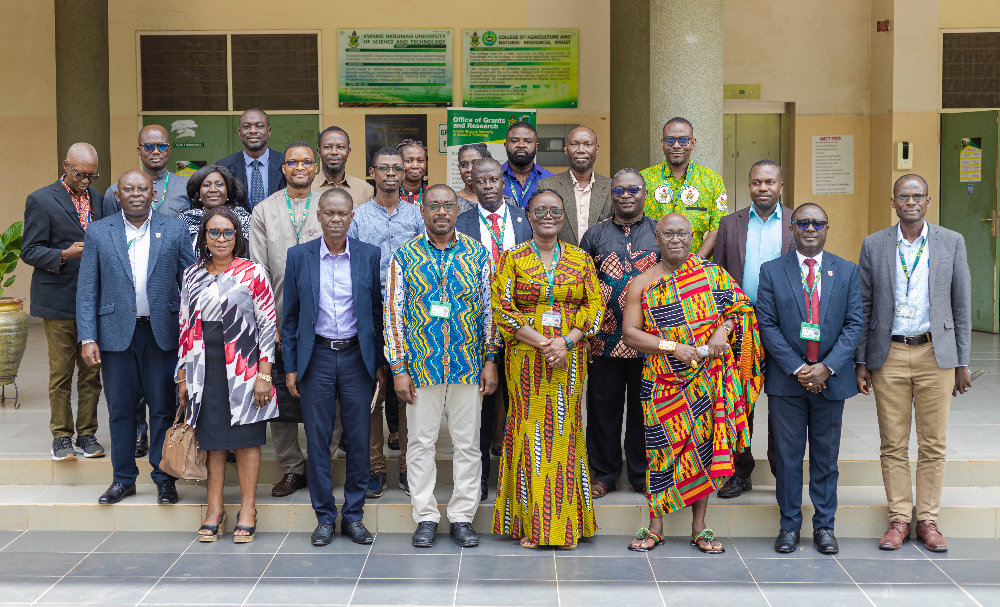The Chairman of the Governing Council of the Kwame Nkrumah University of Science and Technology (KNUST), Kumasi, Akyamfour Asafo Boakye Agyemang-Bonsu, has underscored the indispensable role of the College of Agriculture and Natural Resources (CANR) in shaping Ghana’s agricultural and climate resilience strategies.
"Government cannot take any decision without the College of Agriculture and Natural Resources," he stated.

Akyamfour Agyemang-Bonsu made the remarks during his inaugural working visit to CANR, part of an extensive tour that spans from today, May 27, until July 23, 2025.
He was accompanied by Vice-Chancellor, Professor Mrs. Rita Akosua Dickson, Pro Vice-Chancellor, Professor David Asamoah, Registrar, Mr. Andrews Kwasi Boateng, and Finance Officer, Dr. Charles Nsiah.
During this period, the Council Chair is set to engage with various university unions and other key units across campus.
At CANR, he met with the College Board to gain insights into its ongoing research, training, and development activities.
"I wanted to come and get to know you, to understand where things stand when it comes to agriculture," he said. "If the work we’re doing is not feeding into policy, then we’re not being impactful.”

Provost of the College, Professor Dadson Awunyo-Vitor, delivered a presentation highlighting CANR’s innovative programmes and national impact.
During the interaction, members of the College Board showcased a range of research, innovation, and development initiatives transforming agriculture in Ghana.
A central theme was the college’s leadership in climate-smart agriculture, including the Climate Smart Cocoa and Fertilizer Project, and Integrated Soil Fertility Management, designed to improve productivity while addressing climate change challenges.
A flagship tool presented was the Soil Sense Kit, used to test and analyze soil samples across five districts in Ghana. The data generated informs agricultural investors about land fertility, supporting evidence-based investment in food production.
The College also highlighted its active role in student entrepreneurship, supported by the Kosmos Innovation Center.
Over the past three years, this initiative has fostered startups developing solutions to community challenges, producing items such as natural mosquito repellents, organic soaps, and food-safe detergents, while creating jobs for young people.
Furthermore, the College’s Horticulture Department was recognized for its contribution to the greening of the Kumasi metropolis, in collaboration with the Regional Coordinating Council.
Their work includes the application of soilless cultivation technologies, contributing to sustainable and urban-resilient food production systems.

The Council Chair encouraged CANR to deepen its interdisciplinary collaborations.
"Let’s broaden our scope in emerging technologies," he advised. "KNUST must lead. You cannot pursue agricultural advancement without drawing on spatial planning, engineering, and the humanities.”
He urged the board to explore biochar production using green materials, ammonia synthesis from hydrogen, and quantifying carbon sequestration as future research frontiers.
He also called for a 10-year strategic plan, emphasizing the need for improved forecasting and modeling capacity that would make the college indispensable in national planning.
"Improving modelling capacity means government cannot take any key decision without the input of this College,” he stressed.
Akyamfour Agyemang-Bonsu also posed reflective questions: "What are the socio-economic implications of your research? Can we build capacity or identify collaborators to support this direction? How do we integrate indigenous knowledge into mainstream agricultural research?”
In response, Professor Awunyo-Vitor expressed appreciation for the Council Chair’s engagement and affirmed CANR's commitment to strengthening its relevance and impact.
"We’re grateful for your visit and the commitment you’ve shown,” said Prof. Awunyo-Vitor. "We will take forward the important suggestions and strategic directions discussed today.”

















